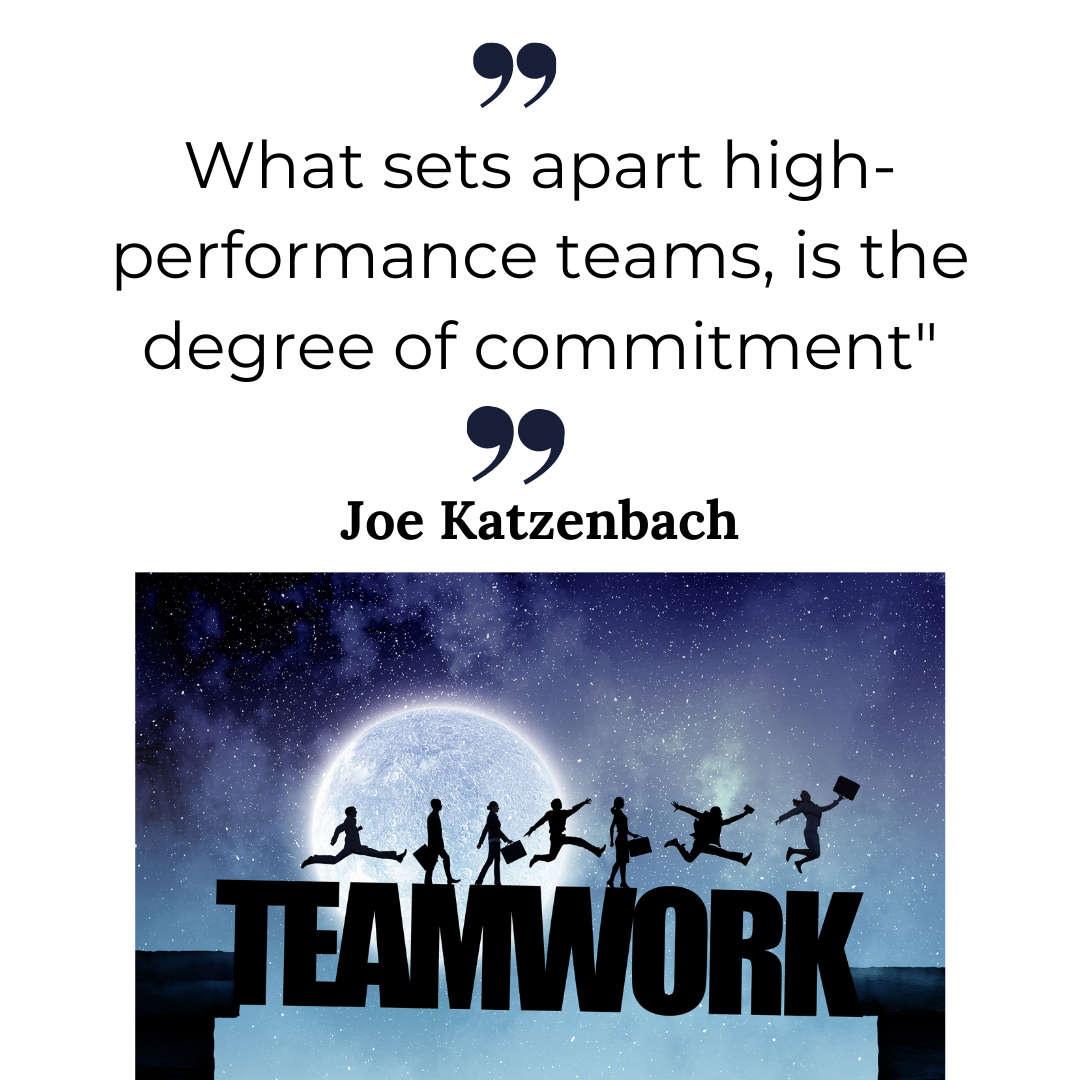5 keys to Building High Performing Teams
How to make your team GREAT?
Goals should be shared
Reinforce Culture
Encourage Celebrations
Always be Engaged
Train Continuously
Any project manager can be great, if they know how to build a great team. The key is to focus on 5 behaviors leaders can foster.
In my last blog, I spoke about Project Failures and how to avoid them.
Now, I want to do more than share how to avoid problems. I want show you how you can bring your team together and creating a place where your people and your project are a success.
Besides my own experience in building a high-performing team, I have researched many other projects. I will summarize the top 5 shared project team behaviors
What you will learn:
why these behaviors are important
how to build them in your team
when you know you have a high-performing team
Goals should be Shared with your Team
Create a shared Call to Action. Engage them and ask for their committment.
Goals - Share the mission and the vision
Why it's important?
Sharing your Why helps the team understand what is at stake. They will get what the team as a whole is trying to accomplish. Sharing the mission creates a shared bond of trust between a leader and their team.
How to do it?
Your team will take their queue from the leadership. Leaders who freely share the project:
Why - the mission you all share
What - the impact to the organization
Who - your end-user and what this means to them
How - the process the project will use
The team is part of the big picture, and so, understand their impact on realizing success.
Even better if that leader can paint a picture of the:
problem,
solution, and
the impact to the end-users.
The team will see, hear and feel the goal and take it on as their own goal. Stories are the way to share how their efforts equal project success.
See more on how to create this story in my blog: Share your Vision with Inspirational Storytelling.
When you know you've achieved it?
When a stakeholder or user can walk up to any team member and ask them what the project is about or how they fit into the project's success, you know you have done your job.
Keep it up by taking the next step to ensure the mission is refined and shared throughout the project's life.
Reinforce Culture & Social Skills
Take time to encourage the right kind of social skills. Social skills are learnable and Project Managers should make this a priority,
EQ - Build a Socially Intelligent Team
Why it's important?
Team conflict can kill the ability to deliver a project. Individuals lose their focus, ability to cope with timelines, and the 'blame game' starts.
Keeping the teams' emotional intelligence high can increase the project's success. It also dramatically impacts how so-called outsiders (stakeholders and the customer) perceive the project. But it also has a more dramatic impact. You can build a team of leaders.
This is what I experienced on that seven-year project. We worked in 35 countries and delivered systems, processes, and service centers to thousands of users.
However, the biggest achievement was the leaders who came from that project and are now running businesses worldwide.
How to do it?
Lead by example. Demonstrate grace under fire. The ability to ask questions and ensure you have the right information even with delines looming.
Don't throw people under the bus, but do ask that they take responsibility for their roles and obligations. More than a "RACI" model of role allocation, each team member understands and owns their decisions, work, and outcomes.
Create transparent accountability. If you mess up, don't cover it up. Everyone can make a mistake or bad decision. Share it, then move on.
Be flexible. Not everything needs to be done a specific way. Share the goal and let the team or member consider the details (as long as they have the skills to do so), and if they don't, sometimes take a chance and let them see if they can fly.
I have found that when you trust and respect people, they trust and respect themselves and their teammates. And most often surprize themselves to find what they are really capable of.
And if someone does act out, don't react, and don't accept it. Everyone will know that good behavior is expected and anything else is not accepted.
When you know you've achieved it?
When the team is in the flow and working together to solve problems across multiple disciplines - you have realized this goal.
Another way to tell when the team is high-performing is when the team naturally corrects unwanted behavior in a member. (Here, I don't mean significant bad behavior, which is a topic for the leadership and HR).
Encourage Celebrations &
Recognition
Success without celebration and recognition are not sustainable. Keep your team valued and engaged.
Celebrate - Recognize team and individual success
Why it's important?
To sustain the energy and drive it takes to complete a project, you need to keep the team's joy. Celebrate the team members and milestones when you can. Find out how the team likes to celebrate and do that. Celebrations should be fun.
How to do it?
Celebrating seems easy, but a few things are key:
Recognize everyone in some way. If only a few are recognized, the team can be fractured, so let every person feel like part of the team if you do single out a few 'heros.'
Publicize your successes. Not just in the team but company newsletters, related organizations, or in a way where team members' families can share in the success.
Recognize growth. Celebration and recognition go hand in hand. Make sure accomplishments include promotions in title, responsibility, and pay.
When you know you've achieved it?
When people like to come to work, feel committed to the project and team, and feel their efforts are celebrated as a group and rewarded as individuals, they are more naturally High-Performing.
“It is amazing what you can accomplish if you do not care who gets the credit.”
Always be Engaged
Foster and Encourage formal and informal communication for a high performing team. Assess the office configuration, meetings and other means to make sure sharing happens.
Communicate - Make information a resource
Why it's important?
Communication is the basis of what a team is doing every day in some form or another. Teams that don't communicate are unable to succeed. They cannot solve problems (or even know that they have one.
Communication is the foundation of a high-performing team.
How to do it?
Start each day with communication of some kind. Have your communication plan include the team members. Share in easy ways to consume:
Poster/Flip charts with the days' highlights and 'heroes.'
Agile style ToDo/Inprogress lists
Stand-up meeting announcements.
Newsletters (but keep them short and sweet)
Make your meetings productive and don't have more than the team needs. If in doubt, ask them how much and how often meetings need to happen. To increase awareness and capability, let a team member run a meeting if possible.
An example: In a department that did not meet its goals, I used the concept of self-managing teams. The group elected leadership who held team meetings and resolved process issues. While management thought I was nuts, the department met all of its goals going forward.
Value speaking and listening skills. Ensures that communication is really happening. As a leader, you need to give the floor to others and often are the last to speak. Sometimes, if the issue is resolved or the topic discussed by the team members, the Project Manager does not need to speak at all.
Give direct feedback, be fair, kind, and clear. Set the example that people don't need to be afraid of communication (waiting for the other shoe to drop).
Communication without drama creates a comfortable environment. Conflicts can be resolved quickly and treated as normal part work.
When you know you've achieved it?
A team that is communicating is open, informed and proactive. Conversations about work, problem solving, or updates can be heard if you walk the halls, join informal meetings, or just look around (you will see interaction, lack of tension, and lots sharing).
Train Continuously
Teams need to learn to work together. Teams are not born, they are made. They need to practice teamwork to become high-performing.
Beyond Training - Create a Learning Organization
Why it's important?
Training is more than sharing project processes. It is about sharing the user journey through understand who the project benefits. Creating empathy for the end-user of the project is a large part of this.
Training can also include sharing each of the key roles (or groups) to ensure team members know how they contribute to the project's overall success and how working together they create the end result. Doing this builds respect among team members. It also helps them to appreciate their challenges and unique skills. And that ultimately they will also succeed or (or fail) together.
How to do it?
Plan training into the calendar for each project cycle, when new members are onboarded, when a new year starts, or when the project scope has changed.
Spend time assessing what skills the team needs to grow. Update documents and process flows in advance. And (this is the really important part) have the team members train each other. This plays (and builds) the strengths of your best team members.
Build teamwork as you build skills through using the train-the-trainer or workshop approach. Include team exercises as part of the workshop.
Train-the-trainer in teams establishes natural leaders. The team members who can answer questions or troubleshoot on the 'project shop floor.' By workshopping problems, the team also experiences real-world problem-solving in a low-risk setting. See if you can make it fun because that is when the real learning will happen.
When you know you've achieved it?
When your team learns, shares, and has fun together, you can work 'in the flow .' A place every project manager wants to be.
The team self-manages and naturally looks for solutions because that is the model they have been trained in. "Flow" will show up as mutual respect, understanding of the customer or end-users point of view, and a willingness to listen to each other, which increases the team's social intelligence.
On a large project I ran for seven years, we created a learning week and ran team building, knowledge sharing, and process update sessions. But the pic de resistance was when we gamified a micro version of the project. We invited a friendly 'customer' to present the challenge and explain the issues from their perspective. Then we ran the game of a 6-month project in less than 6 hours (including our adding in some unforeseen problems). Afterward, we had a 'lessons learned session' run by the team, awards, and a celebration dinner.
High-performing teams create value, success, and 'customer delight.' They also make working so much more enjoyable.
Research for this article
by Patrick Lencioni
Three virtues of team players, check out the YouTube talk on the link above.
Emotional Intelligence for Project Managers
Anthony Mersion
People Skills you need to Achieve Outstanding Results.
The new science of high performing organizations - a talk given to Google and a book.
Rich Karlgaard and Michael S Malone
So what did you think? Do you have other behaviors I didn’t mention?
How important is the Team or Project Leader to team dynamics?
You feedback is always appreciated. Thanks!









